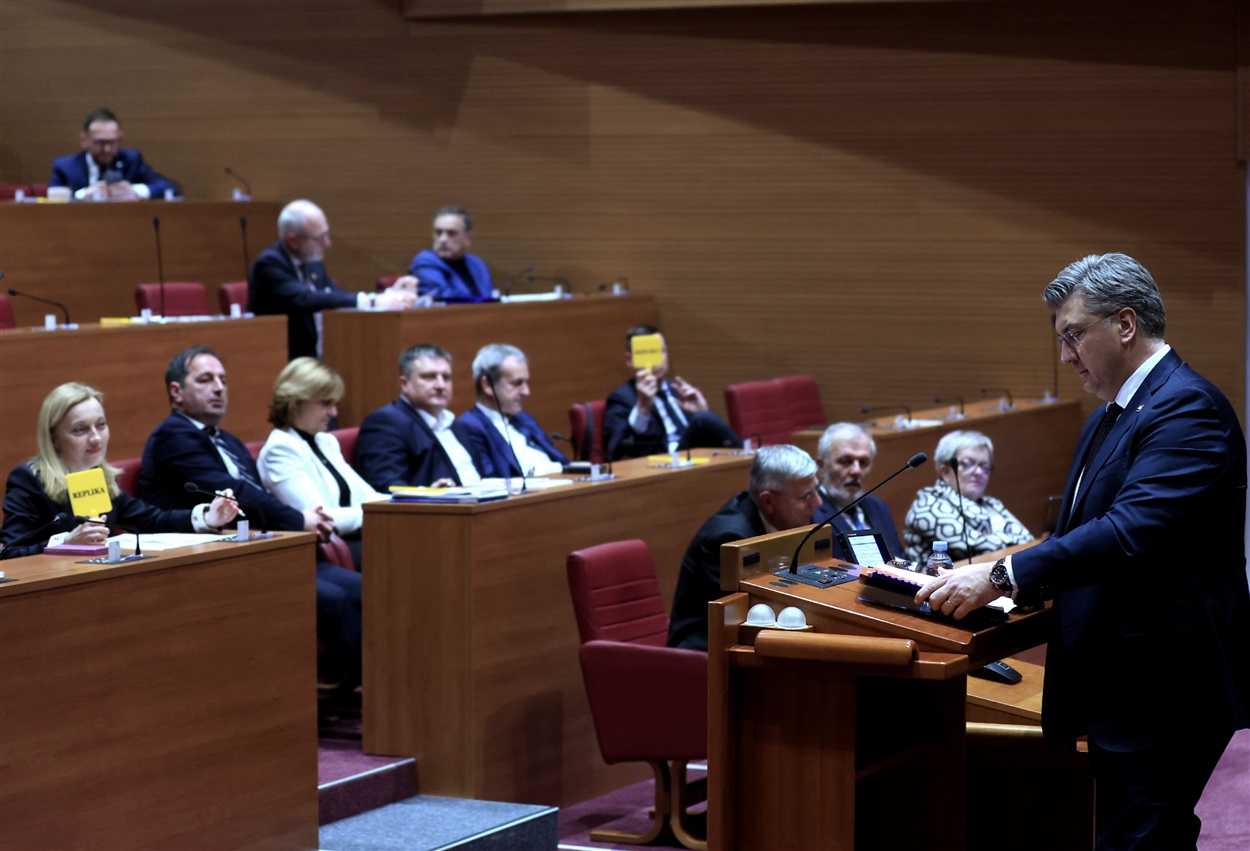
Zagreb - Meetings between the European Union and the countries of Southeast Europe on an annual basis were previously "unimaginable," but today they are a normal practice, which is a big "political success," Prime Minister Andrej Plenković said in Parliament on Wednesday.
He was presenting a report on the meetings of the European Council, as well as the EU-Western Balkans summit held last month.
Plenković said such meetings "have become almost normal practice," which was not the case between 2003 and 2018.
At the initiative of Croatia and neighbouring countries, "at that time Bulgaria," these summits began to take place again, the first one in Sofia in 2018, followed by Zagreb in 2020, and Brdo pri Kranju, Slovenia in 2021.
Since then, meetings have been held almost annually, which was previously "unimaginable," the prime minister said, adding that this is a "political success in imposing this part of Europe as a priority issue."
The whole point of this policy is to "align" the Western Balkan states with the EU, he said.
At the December summit, Croatia also discussed the importance of aligning the visa policies of candidate countries to prevent citizens of third countries from "landing as tourists" in those countries and then, "for large sums of money," becoming illegal migrants and starting their journey westward through Croatia, Plenković said.
The policy of all EU member states on migration is "now very firm" and "focused on protecting the EU's external borders" to prevent shocks to the continent, primarily the "political consequences."
The consequences of the 2015 migration wave are still being felt today, and that phenomenon "changed the political architecture" of Europe, especially in larger member states, more than any other event in recent decades, according to Plenković.
He said that at the European Council meetings, there was "still very strong support for Ukraine," with certain "nuances and reservations" from one country.
Plenković spoke about the "context of Russia’s expenditures for this war," emphasising that Russia allocates 40% of its budget and almost 9% of its GDP to war and military security.
"It is essential to understand that this is entirely a war economy," he said, adding that Croatia should be the last country to forget Ukraine, a nation that was the first to recognise Croatia as a member of the United Nations.
He announced that the government is planning a visit by Ukrainian Prime Minister Denys Shmyhal to Croatia in the coming weeks.